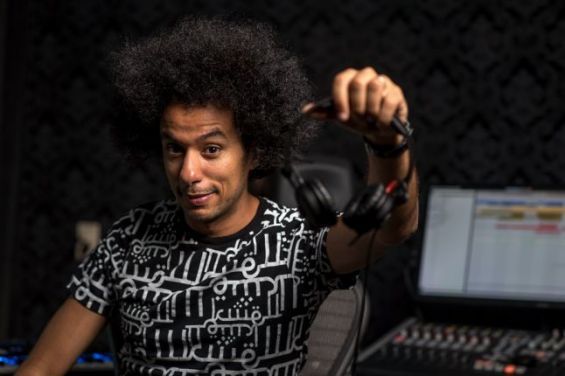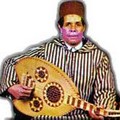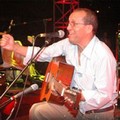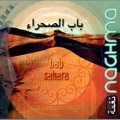Giving the Moroccan music a chance to be part of the international electronic musical scene is an objective that has been put forward by Yassine Arrahil, a Moroccan DJ, electronic music producer and sound engineer nicknamed as Ethnikman. Indeed Yassine is fascinated by the Moroccan ethnic music, the culture, the vibes and unique instruments.
His fascination was translated into an album entitled 'Ahwach' released on the 27th of July. Born in the Netherlands, Ethnikman has been through a lot to accomplish his dream and be part of the music industry.
In an Interview conducted by Yabiladi, Yassine spoke about his passion, journey, and experience. He also expressed what being a music producer meant for him.
How did everything start for you ?
I was born in Rotterdam, Netherlands and I spent half of my childhood there until I moved to Marrakech at the age of 8. It is there when I discovered a lot of instruments and was introduced to the culture, and I got really fascinated by the people, the language and the music as well. I then helped producing the first unofficial tracks of Fnaïre along with other rappers in the neighborhood back then. I was nicknamed in Marrakech 'Smiley'.

Growing up in Daoudiate district in Marrakech, I was making Hip Hop music; it was around 1998 and early 2002. I grew up making music with local artists, such as Dahmoune, Soulman med amine, Mohsine from Fnaire, Rebel Moon and othmane known as K-tone along with knonw DJs namely, DJ Van and Younes B to name few and other talented musicians who did and others who did not make it to the industry.
The music was based on using Moroccan traditional instruments such as Bendir, Taarija, krakech and sampling segments from old cassette tapes. We used to make the beats by layering them using a full duplex soundcard and digital audio workstation and editing softwares. The recordings of the vocals took place either at my acoustically-untreated room or at DJ van's event rental equipment shop.
Why did you decide to go back to the Netherlands ?
I decided to go back to the Netherlands because I wasn't able to make it in Morocco due to the lack of creativity, media and infrastructure back then. It was kind of hard to find audio related-manuals and audio-visual institutes that teach this craft. Once in the Netherlands, I studied sound engineering at the SAE Institute of Rotterdam, which helped me learn the ins and outs of the field and of studio recording, mixing and mastering. I managed to have hands-on experience, real world audio technology training, and live front-of house mixing which helped me acquire the needed technical means of sound engineering and music production.

The other reason why I came back to the Netherlands was to develop myself professionally, and boost my carrier in the IT industry. I am working now as a technical support engineer for a Cloud-based Software company.
What is so unique about your music ?
What makes my music unique is that I want to bring the Moroccan touch into the dance floor and to the electronic music scene worldwide. I got a little bit tired of hearing the same repetitive synth-based chords in clubs or big events here in the Netherlands.
I felt that I had to showcase and introduce our musical heritage to the clubbing community because it has some kind of spiritual vibe and colorful tones to it. Now I finished my first commercial album 'Ahwach' that was released on the 27th of July on digital stores online. I am still in the process of producing a vinyl pressing plant to for in the next few months.
Do you think things would have been different if you stayed in Morocco ?
I would say yes, but the progress path and the production flow would have taken a bit longer, due to the limited means. It would also be affected by the fact that acquiring the right equipment to mix professionally was almost impossible.
In Holland, it was a lot easier for me as a young music producer. Borrowing technical books form the public library, and having access to digital content on related-online courses was made possible thanks to PayPal or local payment methods.

Good speakers were the hardest piece of equipment to have as a teenager, due to higher price tag. They help reveal the frequency spectrum in the full range for analysis of rhythms and sounds during the mixing and mastering phase.
You had an interesting journey moving from the Netherlands to Marrakech and then back to the city where you were born. Where have you felt the most a fish out of water, Morocco or Holland ?
A fun fact, in Rotterdam I was seen and looked at as the Moroccan kid regardless of my full and natural integration with the culture, this I would personally say, is just a part of how most societies like to define their cultural uniqueness.
On the other hand, I was born in the Netherlands and I was always considered as the Dutch kid in Morocco during my childhood. So being a fish out of water is a feeling that I learnt how to deal with, in hard and easy ways. All in all, I tried to take the best out of the two cultures making a better version of myself.
Do you think that the music industry got better compared to 1999 ?
Definitely yes, the music industry and live events have changed to a higher scale. I see a lot of great and original festivals such as Timitar in Agadir, Taragalte festival, Moga festival in Essaouira, Oasis festival, the Atlas Electronic festival for electronic music (which is organized by Dutch electronic musicians), and the Gnawa festival in Essaouira which is becoming an internationally known event. I still remember when I went to the third edition in 2000, there was no fusion artists, only the Maalems. Now the stage and the line-up have reached an international scale.
What are your future projects ?
I am planning to score original soundtracks for an upcoming movie that will be directed by Yassine El Idrissi, we have met shortly after his Film studies in Amsterdam. I am also working actually towards producing two different albums in parallel, that will introduce two different Moroccan folklore music genres into an Ethnic House style, as I am looking forward to do some remixes with artists such as Karima el Fillali, Rebel Moon and Oum.





 chargement...
chargement...













